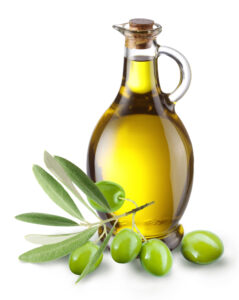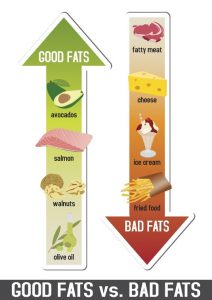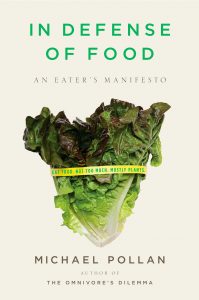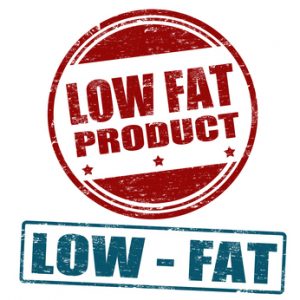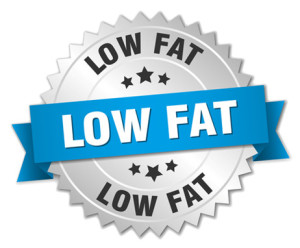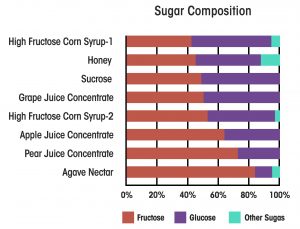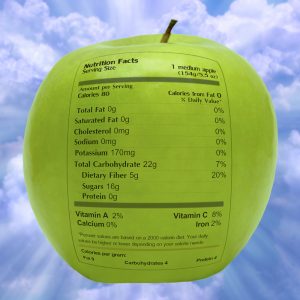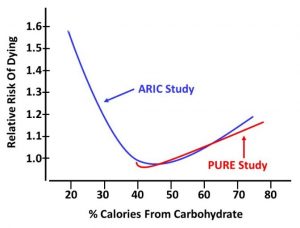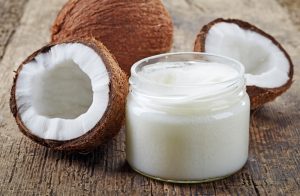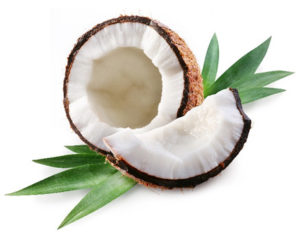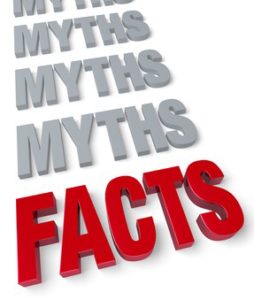Is Everything You Knew About HDL Wrong?
Author: Dr. Stephen Chaney
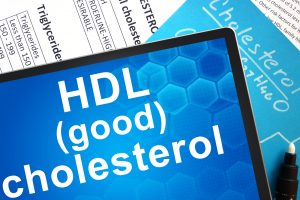 In last week’s “Health Tips From the Professor” I talked about one of the greatest strengths of the scientific method – namely that investigators constantly challenge, and occasionally disprove, existing paradigms. That allows us to discard old models of how things work and replace them with better ones.
In last week’s “Health Tips From the Professor” I talked about one of the greatest strengths of the scientific method – namely that investigators constantly challenge, and occasionally disprove, existing paradigms. That allows us to discard old models of how things work and replace them with better ones.
Last week I shared a study that disproved the paradigm that low to moderate alcohol consumption is healthier than total abstinence. This week I share several studies that challenge the belief that HDL cholesterol is good for your heart.
The belief that HDL is good for your heart has all the hallmarks of a classic paradigm.
- It is supported by multiple clinical studies.
- Elaborate metabolic explanations have been proposed to support the paradigm.
- It is the official position of most medical societies, scientific organizations, and health information sites on the web.
- It is the recommendation of most health professionals.
- It has been repeated so often by so many trusted sources that everyone assumes it must be true.
Once we accept the HDL/heart health paradigm as true, we can construct other hypotheses on that foundation. For example:
- Raising your HDL levels naturally takes effort. Pharmaceutical companies have been pursuing the “magic pill” that raises HDL levels without any effort on your part.
- Low carb diets like the Keto and Paleo diets are high in saturated fat. The low carb enthusiasts claim this is a good thing because saturated fat raises HDL levels, and HDL is good for your heart.
But what if the underlying HDL/heart health paradigm weren’t true? These hypotheses would be like the parable of a house built on a foundation of sand. The paradigm will be washed away as soon as it is critically tested.
So, let’s look at experiments that have challenged the HDL/heart health paradigm.
Do Drugs That Increase HDL Levels Work?
 The first hint that the HDL/heart health paradigm might be faulty happened when a pharmaceutical company developed a drug that selectively increased HDL levels.
The first hint that the HDL/heart health paradigm might be faulty happened when a pharmaceutical company developed a drug that selectively increased HDL levels.
The drug company thought they had found the goose that laid golden eggs. Just imagine. People wouldn’t have to lose weight, exercise, or change their diet. They could simply take a pill and dramatically decrease their heart disease risk. A drug like that would be worth $billions.
The problem was that when they tested their drug (torcetrapib) in clinical trials, it had absolutely no effect on heart disease outcomes (AR Tall et al, Atherosclerosis, Thrombosis, and Vascular Biology 27:257-260, 2007).
The pharmaceutical company couldn’t believe it. Raising HDL levels just had to reduce heart disease risk. They concluded they didn’t have the right drug, and they continued to work on developing new drugs.
That was 16 years ago, and no HDL-increasing drug has made it to market. Have they just not found the right drug, or does this mean the HDL/heart health paradigm is incorrect?
Does Saturated Fat Decrease Heart Disease Risk?
 Now let’s turn to two claims of low carb enthusiasts.
Now let’s turn to two claims of low carb enthusiasts.
#1: Saturated fats decrease your risk of heart disease in the context of a low carb diet. I have debunked that claim in several previous issues of “Health Tips From The Professor”. But let me refer you to two articles here – one on saturated fat and heart disease risk and one on low-carb diets.
#2: Saturated fats decrease heart disease risk because they raise HDL levels. This is the one I will address today.
The idea that saturated fats decrease heart disease risk because they raise HDL levels is based on a simplistic concept of HDL particles. The reality is more complex. Several clinical studies have shown:
- The type of fat determines the property of the HDL particles.
-
- When polyunsaturated fats predominate, the HDL particles have an anti-inflammatory effect. When saturated fats predominate, the HDL particles have a pro-inflammatory effect.
- Anti-inflammatory HDL particles relax the endothelial cells lining our blood vessels. That makes the lining of our blood vessels more pliable, which improves blood flow and reduces blood pressure.
-
- Anti-inflammatory HDL particles also help reduce inflammation of the endothelial lining. This is important because an inflamed endothelial lining is more likely to accumulate fatty plaques and to trigger blood clot formation that can lead to heart attacks and strokes.
So, the question becomes, “What good is it to raise HDL levels if you are producing an unhealthy, pro-inflammatory HDL particle that may increase the risk of high blood pressure, heart attacks, and strokes?”
In short, these studies suggest it isn’t enough to just focus on HDL levels. You need to ask what kind of HDL particles you are creating.
Is HDL Good For Your Heart?
 Once the studies were published showing that…
Once the studies were published showing that…
- Drug-induced increase of HDL levels without any change in health habits is not sufficient to decrease heart attack risk, and…
- Not all HDL particles are healthy. There are anti-inflammatory or pro-inflammatory HDL particles, which likely have opposite effects on heart attack risk…
…some people started to question the HDL/heart health paradigm. And one group came up with the perfect study to test the paradigm.
But before I describe the study, I need to review the term “confounding variables”. I described the term and how it affects clinical studies in last week’s article. Here is a brief synopsis:
- The studies supporting the HDL/heart health paradigm are association studies. Association studies measure the association between a single variable (in this case, increase in HDL levels) and an outcome (in this case, heart disease events, heart disease deaths, and total deaths).
- Associations need to be corrected for other variables known to affect the same outcome (things like age, gender, smoking, and diabetes would be examples in this case).
- Confounding variables are variables that also affect the outcome but are unknown or ignored. Thus, they are not used to correct the associations, which can bias the results.
The authors of this study (M Briel et al, BMJ 2009:338.b92) observed that most interventions that increase HDL levels also lower LDL levels. Lowering LDL is known to decrease the risk of heart disease deaths. But this effect had been ignored in most studies looking at the association between HDL and heart disease deaths.
They hypothesized that the change in LDL levels was a confounding variable that had been ignored in previous studies and may have biased the results.
To test this hypothesis the authors searched the literature and identified 108 studies with 299,310 participants that:
- Compared the effect of drugs, omega-3 fatty acids, or diet with either a placebo or usual care.
- Measured both HDL and LDL levels.
- Measured reduction in cardiovascular risk.
- Had a randomized control design.
- Lasted at least 6 months.
They found that every 10 mg/dl decrease in LDL levels in these studies was responsible for a:
- 7.1% reduction in heart disease events (both heart disease deaths and non-fatal heart attacks).
- 7.2% reduction in heart disease deaths.
- 4.4% reduction in total deaths.
After correcting for the effect of decreased LDL levels on these heart disease outcomes, the increase in HDL levels had no statistically significant effect on any of the outcomes.
The authors concluded, “Available data suggest that simply increasing the amount of circulating HDL cholesterol does not reduce the risk of coronary heart disease events, coronary heart disease deaths, or total deaths. The results support reduction in LDL cholesterol as the primary goal for lipid modifying interventions.”
In other words, this study:
- Supports the author’s hypothesis that LDL levels were a confounding variable that biased the studies supporting the HDL/heart health paradigm.
- Concludes that increasing HDL levels has no effect on heart disease outcomes, thus invalidating the HDL/heart health paradigm.
Is Everything You Knew About HDL Wrong?
 Does that mean that everything you knew about HDL is wrong? Not exactly. It just means that you need to change your perspective.
Does that mean that everything you knew about HDL is wrong? Not exactly. It just means that you need to change your perspective.
Don’t focus on HDL levels. Peek behind the curtain and focus on what’s behind the HDL levels. For example:
- Losing weight when overweight increases HDL levels. But the decrease in heart disease outcomes is more likely due to weight loss than to the increase in HDL levels.
- Exercise increases HDL levels. But the decrease in heart disease outcomes is more likely due to exercise than to the increase in HDL levels.
- Reversing pre-diabetes or type 2 diabetes increases HDL levels. But the decrease in heart disease outcomes is more likely due to the reversal of diabetes than to the increase in HDL levels.
- High-dose omega-3 fatty acids increase HDL levels. But the decrease in heart disease outcomes is more likely due to the omega-3 fatty acids than to the increase in HDL levels.
- The Mediterranean diet increases HDL levels. But the decrease in heart disease outcomes is more likely due to the diet than to the increase in HDL levels.
And if you want to go the drug route:
- Statins and some other heart drugs increase HDL levels, but the reduction in heart disease outcomes is probably due to their effect on LDL levels rather than their effect on HDL levels.
On the other hand:
- Saturated fats increase HDL levels. But saturated fats increase heart disease risk and create pro-inflammatory HDL particles. So, in this case the increase in HDL levels is not a good omen for your heart.
- Drugs have been discovered that selectively increase HDL levels. However, there is nothing of value behind this increase in HDL levels, so the drugs have no effect on heart disease outcomes.
The Bottom Line
In this article I discuss several studies that have challenged the HDL/heart health paradigm – the belief that HDL is good for your heart.
For example, one group of investigators analyzed the studies underlying the HDL/heart health paradigm. They hypothesized that these studies were inaccurate because they failed to account for the effects of LDL levels on heart disease outcomes.
After correcting for the effect of decreased LDL levels on heart disease outcomes in the previous studies, the authors showed that increases in HDL levels had no significant effect on any heart disease outcome.
The authors concluded, “Available data suggest that simply increasing the amount of circulating HDL cholesterol does not reduce the risk of coronary heart disease events, coronary heart disease deaths, or total deaths. The results support reduction in LDL cholesterol as the primary goal for lipid modifying interventions.”
In other words, this study:
- Supports the author’s hypothesis that LDL levels were a confounding variable that biased the studies supporting the HDL/heart health paradigm.
- Concludes that increasing HDL levels has no effect on heart disease outcomes, thus invalidating the HDL/heart health paradigm.
Does that mean that everything you knew about HDL is wrong? Not exactly. It just means that you need to change your perspective. Don’t focus on HDL levels. Focus on what’s behind the HDL levels. For more information on that, read the article above.
For more information on this study, and what it means for you, read the article above.
These statements have not been evaluated by the Food and Drug Administration. This information is not intended to diagnose, treat, cure, or prevent any disease.
____________________________________________________________________________
My posts and “Health Tips From the Professor” articles carefully avoid claims about any brand of supplement or manufacturer of supplements. However, I am often asked by representatives of supplement companies if they can share them with their customers.
My answer is, “Yes, as long as you share only the article without any additions or alterations. In particular, you should avoid adding any mention of your company or your company’s products. If you were to do that, you could be making what the FTC and FDA consider a “misleading health claim” that could result in legal action against you and the company you represent.
For more detail about FTC regulations for health claims, see this link.
https://www.ftc.gov/business-guidance/resources/health-products-compliance-guidance

